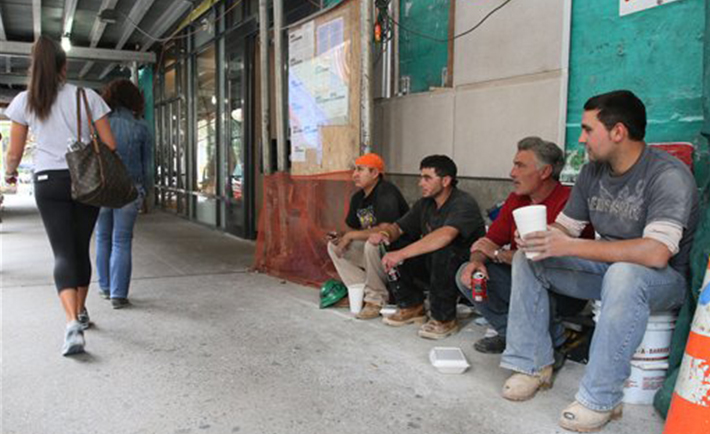
Public harassment can be defined as ‘the intimidation of an individual in a public space.’ Also known as street harassment, public harassment has been highlighted in the media of late.
Last month YouTuber Sam Pepper was accused of Public and Sexual Harassment. This month a video, documenting a woman walking through NYC for ten hours went viral. The footage was harrowing to watch and depicted the female in question being subjected to many forms of public harassment.
Meanwhile, in a survey conducted at UCD by the Dublin branch of Hollaback, an organisation which aims to end street harassment, sixty four per cent of females and 10 per cent of males were found to have been street harassed.
I think that public harassment happens to women in particular due to the gender discrimination and sexism that is still present in today’s society. This objectification of women from puberty to adulthood rears it head every time a man tries to force a woman into giving him attention through words, sounds or gestures.
When people make statements like ‘sure it’s a compliment’, I’m tempted to give up on this society forever. Lewd gestures and comments are not compliments – if anything they show that the woman being targeted, yes targeted, is not respected.
In the last three months alone I’ve been stopped and intimidated by five men who felt it was appropriate to make unwanted advances towards me – despite the fact that I was clearly uncomfortable.
This included a traumatic experience on the juice aisle of Tesco, in which a man in what I took to be his fifties approached me. He informed me that he had dated ‘black Nigerian women’ in the past and suggested that he was rolling in cash.
Clearly this man thought that because I had a friendly and open face, he had the right to intimidate me with his inappropriate comments. In other words, he took advantage.
Another statement that really makes my blood boil is ‘it’s not harassment if you weren’t physically harmed.’ LIES! Victims of public harassment may not be physically injured, but they are still undoubtedly affected emotionally. Public harassment can also often escalate into sexual harassment, which is what makes it so dangerous.
Case in point, I was walking to the shops one mid-afternoon in October, when I heard a man wolf-whistling behind me. I ignored it like any sensible person would. He then suddenly ran past, slipped his hand down my back and hovered it over my bum, before giving me a cheeky wink and making a fast getaway.
What was most disturbing about this incident was that he thought his actions were humorous. If anything they angered, embarrassed and scared me. His behaviour was invasive and insulting.
As far as I’m concerned, incidents of street harassment will continue to grow if we don’t draw people’s attention to such unwanted and intimidating behaviour. The streets belong to us all and each one of us should feel safe when walking them.
With this in mind, I am pleased to hear that DCU Welfare Officer Eve Kerton has promised a series of workshops on Street Harassment in the near future. In these I urge you to take part.
After all, if we are to speak up about inappropriate behaviours, we need not only to be empowered, but informed.
Zainab Boladale

Leave a Reply